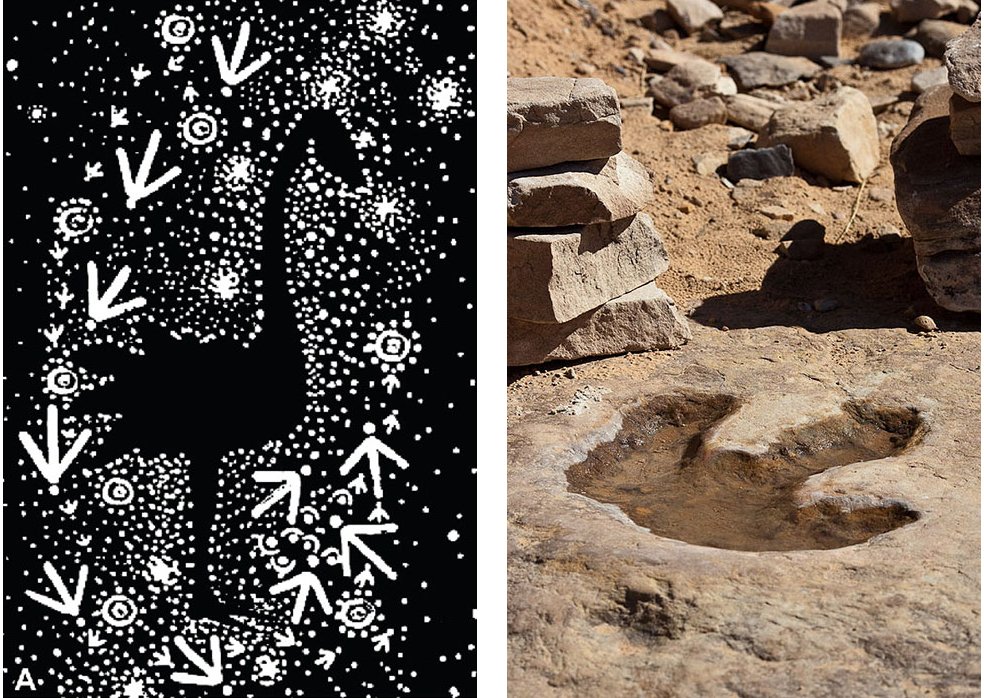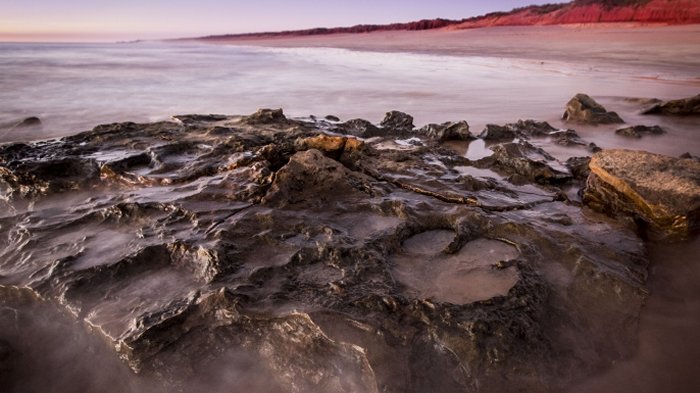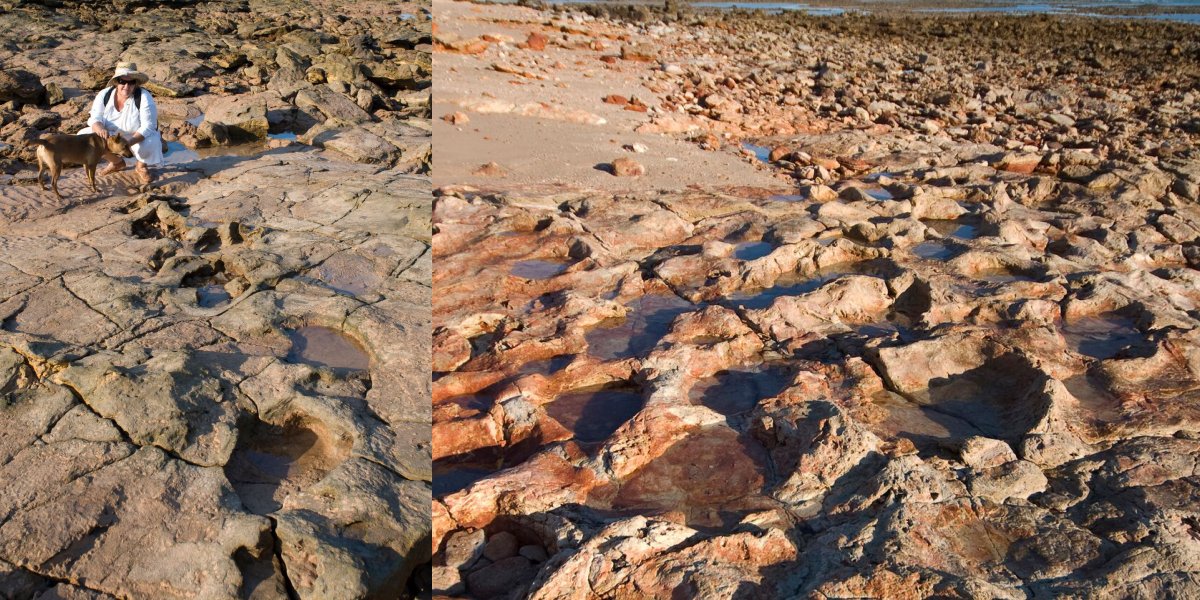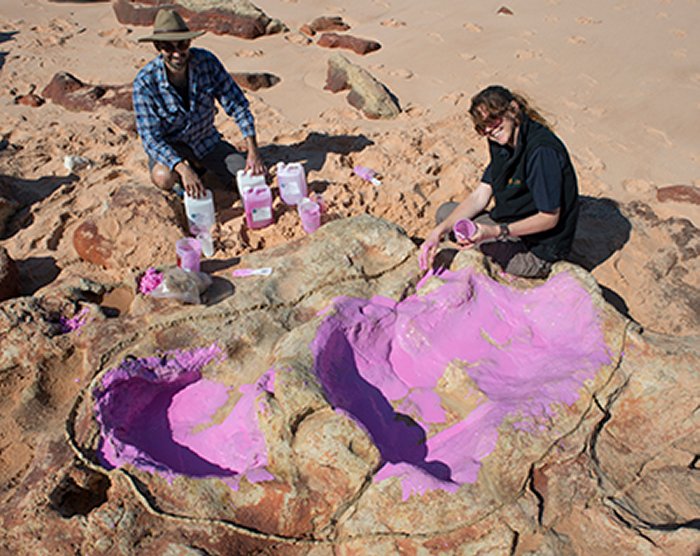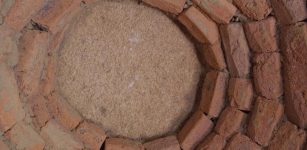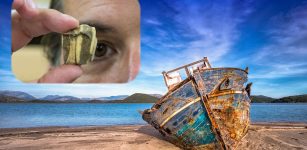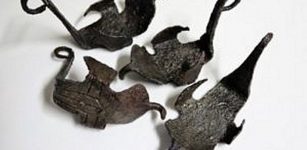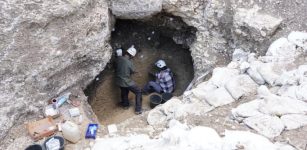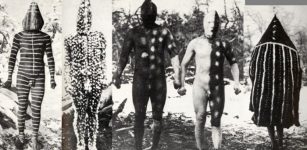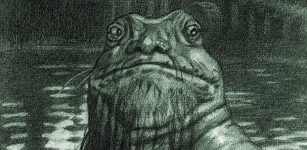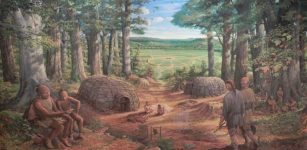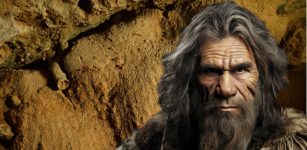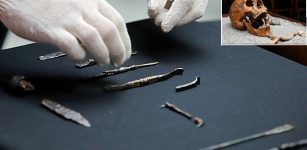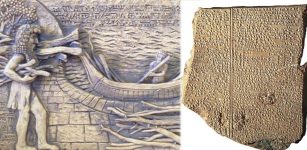Aboriginal Creation Story Of Marala Was True – World’s Largest Dinosaur Footprints Confirm Ancient Creation Myth
Conny Waters - AncientPages.com - World’s largest dinosaur footprints have been discovered in the remote Kimberley region of Western Australia. Dubbed “Australia’s Jurassic Park”, footprints belonging to 21 different dinosaurs have been identified at the site so far.
One of the footprints measures nearly 5 feet 9 inches (1.75 meters). It was made by a sauropod and it is believed to be the largest dinosaur track ever recorded.
Dinosaur Tracks Confirm Aboriginal Creation Story Of Marala’s Journey
The discovery does not only give us a better understanding of the history of dinosaurs, but it also confirms the Aboriginal creation story and the journey of a Dreamtime creator being, called Marala, the Emu man.
Many Indigenous Australians also refer to the Creation time as "The Dreaming". According to Aboriginal belief, all life as it is today - humans, animals, birds, and fishes are part of one vast unchanging network of relationships which can be traced to the great spirit ancestors of the Dreamtime.
In ancient Aboriginal myths, Marala is described as a mythical being. He was a lawgiver and responsible for giving people a code of conduct for good behavior needed to keep things in balance. Marala was an Emu Man and he left his impression on the sky and on the sand.
See also:
Aboriginal Legends Tell Millennia-Old Stories Of Events In The Sky
Ancient DNA Reveals A 50,000-Year-Old Secret And Re-Writes History Of Australia
Aboriginal People Inhabited Australia Before The Mungo Man – New Study Reveals
Aboriginal 'Memories' Of Australia's Coastline Go Back More Than 7,000 Years
During his journey through the Song Cycle from south to north as well as in and out of the sea, Marala left behind three-toed tracks. He also left behind the grooved impressions of his tail feathers when he sat down to rest and create his law ground. Today, three-toed dinosaur tracks that are assigned to Megalosaurus broomensis, a theropod, and impressions of cycad-like plants serve as evidence of Marala's journey as narrated in the Song Cycle.
Palaeontologists Describe The Site As Australia’s Own Jurassic Park
According to Dr Steve Salisbury from the University of Queensland, the diversity of the tracks around Walmadany (James Price Point) is extremely significant, forming the primary record of non-avian dinosaurs in the western half the continent and providing the only glimpse of Australia’s dinosaur fauna during the first half of the Early Cretaceous Period.
Dr. Salisbury and his team have dedicated more than 400 hours to investigating and documenting the dinosaur tracks that extend along the coast and then inland for 450 km. All the dinosaur tracks were found in 127 to 140 million-year-old rocks.
Written by Conny Waters - AncientPages.com Staff Writer
Expand for references

